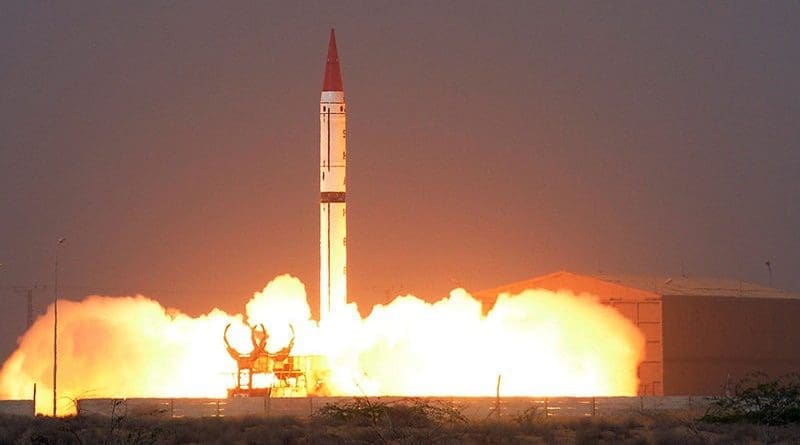Pakistan’s Nuclear Tests: A Balancing Act – OpEd
By Talha Imran
On May 28, 1998, Pakistan conducted five simultaneous underground nuclear tests in the Ras Koh Hills of Balochistan province, followed by a sixth test two days later at Kharan. The tests were a direct response to India’s nuclear tests earlier that month, which had raised the specter of a nuclear arms race in South Asia. Pakistan claimed that its tests were necessary for its national security and regional stability, as well as a demonstration of its technological prowess and political will. But the tests also provoked international condemnation and sanctions, and heightened the risk of a nuclear conflict between the two neighbors.
Pakistan’s decision to test was driven by a mix of strategic, domestic and international factors. Strategically, Pakistan felt that it had to match India’s nuclear capability to deter any aggression and maintain a balance of power in the region. Pakistan had been pursuing a covert nuclear weapons programme since the 1970s, after India’s first nuclear test in 1974. Pakistan had also witnessed India’s growing conventional and missile capabilities, as well as its expanding diplomatic and economic influence. Pakistan feared that India’s nuclear tests would give it an edge over Pakistan and embolden it to pursue its claims over the disputed territory of Kashmir.
Domestically, Pakistan faced pressure from various quarters to test its nuclear weapons. The public opinion was overwhelmingly in favor of testing, as many Pakistanis saw it as a matter of national pride and identity. The military establishment, which had a dominant role in Pakistan’s security policy, also advocated testing as a way of enhancing its prestige and credibility.
The political leadership, led by Prime Minister Nawaz Sharif, was under pressure from both the military and the public to respond to India’s challenge. Sharif also saw testing as an opportunity to boost his popularity and legitimacy, which had been eroded by economic difficulties and political scandals.
Internationally, Pakistan hoped that its tests would elicit sympathy and support from the Muslim world and other developing countries, as well as compel the major powers to intervene in the Kashmir dispute and restrain India’s ambitions. Pakistan also felt betrayed by the weak and inconsistent response of the international community to India’s tests, which it perceived as a double standard and a failure to uphold the global non-proliferation regime. Pakistan argued that it had been left with no choice but to test after India had violated the norms of nuclear restraint and responsibility.
However, Pakistan’s tests also had negative consequences for its security and economy. The tests triggered a wave of international criticism and sanctions, especially from the United States and Japan, which suspended their economic and military assistance to Pakistan.
The tests also increased the tension and mistrust between India and Pakistan, which escalated into a limited war over Kargil in 1999. The tests also raised questions about the safety and security of Pakistan’s nuclear arsenal, as well as the risk of proliferation and terrorism. Moreover, the tests did not resolve the underlying issues that fueled the rivalry between India and Pakistan, such as Kashmir, terrorism, water sharing and trade.
Pakistan’s nuclear tests were a historic moment for the country and the region. They marked its entry into the exclusive club of nuclear-armed states, and signaled its determination to defend its sovereignty and interests against any threat. They also reflected Pakistan’s aspiration to be recognized as a major regional power and a leader of the Muslim world. But they also posed new challenges and responsibilities for Pakistan, which had to balance its nuclear deterrence with its economic development and diplomatic engagement. They also highlighted the need for dialogue and cooperation between India and Pakistan to prevent a nuclear catastrophe and promote peace and stability in South Asia.
The author is an independent researcher and Lecturer at National University of Modern Languages (NUML), Islamabad.

